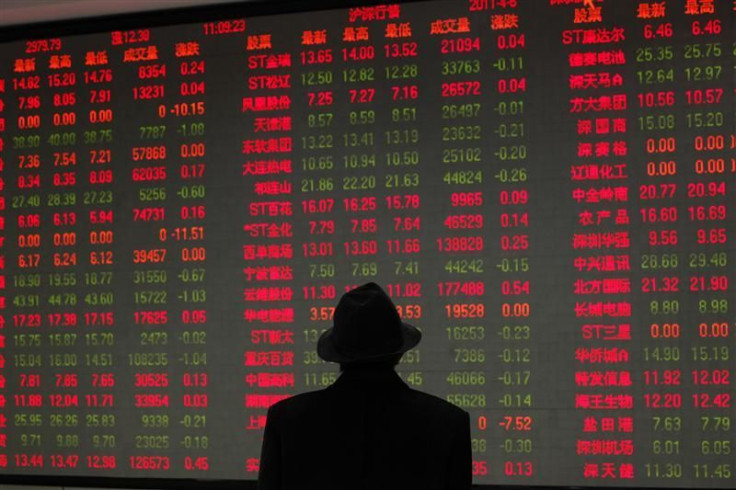Asian Stocks Fall On Growth Slowdown Worries

Most Asian markets fell Wednesday amid investor concerns about the euro zone’s debt burden to worsen global economic downturn.
Japan's Nikkei Stock Average fell 0.37 percent or 32.54 points to 8825.19. Among major losers were Panasonic Corp (4.10 percent), NEC Corp (2.68 percent) and Sony Corp (2.68 percent).
South Korea’s KOSPI Composite Index declined 0.37 percent or 6.71 points to 1822.74. Shares of Samsung Electronics Co Ltd fell 1.33 percent and shares of Hyundai Motor Co declined 1.10 percent.
India's BSE Sensex fell 0.36 percent or 64.25 points to 17554.10. Major losers were Sesa Goa (0.87 percent), ICICI Bank (0.66 percent) and Lanco Infratech Ltd (0.63 percent).
The Chinese Shanghai Composite marginally rose 0.06 percent or 1.36 points to 2165.80. Hong Kong's Hang Seng declined 0.28 percent or 53.40 points to 19342.96. Major losers were China Construction Bank Corp (2.36 percent) and Agricultural Bank of China Ltd (0.99 percent).
Investors are worried about the debt burden in the euro zone, although the ten-year government bond yields in Spain dropped back by around 30 bps on Tuesday. But the measures announced at the euro zone finance ministers’ meeting in Brussels to support the country do not seem to change the view of market players that Spain will require a full sovereign bailout in the fairly near future.
Investors feel that the disbursement of funds to recapitalize Spain’s banks by the end of this month may not be enough as there are doubts whether the full support package will be sufficient to restore the Spanish banking system to health.
Market participants are also worried about uncertainties over the recapitalization plan, with discussions starting only in September on whether the European Stability Mechanism (ESM) can recapitalize banks directly in the future rather than the money being offered via the Spanish government.
“It appears unlikely that the ESM has sufficient firepower to neutralize both market concerns over Spain’s own precarious position and further likely contagion effects from the continued problems of other countries like Greece,” said Jonathan Loynes, Chief European Economist at Capital Economics.
© Copyright IBTimes 2025. All rights reserved.





















